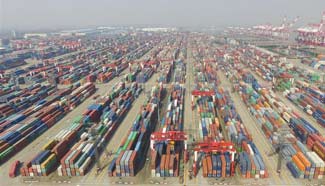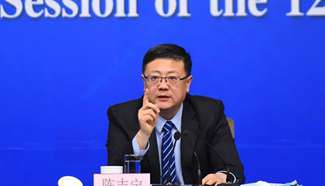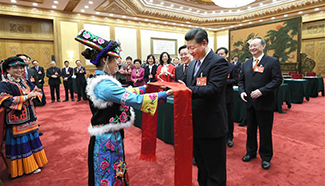by Christine Lagat
NAIROBI, March 9 (Xinhua) -- Countries in East Africa in conjunction with their multilateral partners must invest in vibrant early warning systems to enhance their response to recurrent droughts, a senior UN environment official said.
United Nations Environment Programme (UNEP) Deputy Executive Director Ibrahim Thiaw also blamed climate change for the current drought that poses new threats to regional stability, peace and development.
"Droughts have always existed in this part of the world and what is new is their frequency and severity. Countries must build strong early warning systems to boost their preparedness to drought," Thiaw told Xinhua in an interview in Nairobi on Wednesday.
The UNEP contends that an estimated 17 million people are staring at starvation in the East and Horn of Africa region due to a prolonged dry spell that escalated early this year.
"Both East Africa and the Sahel region are vulnerable to climate change impacts like floods and droughts. It is difficult to predict them and their damage to the economy is huge," Thiaw said.
He underscored the role of climate resilient farming systems to cushion East African communities from hunger and malnutrition.
"We can put in place systems to alert farmers on impending droughts in order to enhance their preparedness and reduce damage," said Thiaw, adding that policy reforms are key to strengthening climate resilience in the eastern Africa region.
The Eastern African region must brace itself for ecological, health and economic devastation occasioned by rising temperatures.
Thiaw stressed that a pragmatic approach is required to minimize impacts of droughts in a region where vast majority of people depend on nature based assets to survive.
"If people are aware of looming droughts, they will take mitigation measures," Thiaw remarked, adding timely alerts will enable communities and humanitarian agencies to respond better to famine
UNEP has championed adoption of new innovations revolving around weather prediction, green farming and clean energy to strengthen resilience of local communities in the eastern African region in the face of climate change.
Thiaw urged governments in the region to invest in climate resilient infrastructure and industries to prevent losses that are linked to severe droughts and flooding.
"We need to ask ourselves what kind of roads and ports that we can build in the light of sea level rise," said Thiaw, adding that climate resilient cities will withstand challenges like flooding and spread of communicable diseases.
Thiaw noted that China has technology and expertise that countries in the region can harness to enhance their drought responses.
He singled out Chinese expertise in reclamation of deserts alongside satellite technology as areas that East African nations could tap and boost their capacity to respond to droughts.












